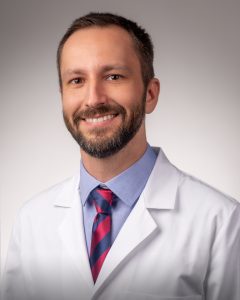ISCD Travel Grant Recipient shares experience at the International Federation of Musculoskeletal Research Societies’ (IFMRS) 4th Herbert Fleisch Workshop in Brugge, Belgium
ISCD Member, Alvin L Day, MD, CCD received the ISCD travel grant to attend the IFMRS Annual Conference and shares his experience below – an interesting personal account as a professional without a current focus on research in his musculoskeletal health career.
Considering a Path Toward Research?
When a clinician accidentally walks into a basic science lecture, they often back away slowly and hope no one sees them. As a rheumatologist who is primarily a clinician educator, there is often a sense of being out of my element at such conferences, but that was not how I felt at the 4th Herbert Fleisch Workshop in Brugge, Belgium. The goal of the workshop was to bring together seasoned and early career investigators in the field of musculoskeletal research with a focus on collaboration, networking, and collective guidance for early career advancement. The workshop consisted of keynote lectures, oral abstract presentations, poster presentations, and breakout interactive sessions. While at the conference, I improved my knowledge of current basic and clinical science research, and I was able to gather some universal tips from the seasoned investigators.
Finding Your Niche
No matter the stage of their career, each speaker had a clear research topic focus. If you are considering a career in research, how do you choose a field in which to study? Are there traits that are more associated with career success? Dr. Duncan Bassett, a professor and endocrinologist at Imperial College of London, United Kingdom, decided to pursue endocrinology when he first saw patients who had multiple endocrine neoplasia syndromes. The dysregulation of parathyroid hormone within those syndromes led him further into his research focus on determining the underlying cellular and molecular mechanisms of skeletal development. Dr. Roland Baron, a professor of oral medicine at Harvard University, United States, and past president of the American Society for Bone and Mineral Research, emphasized that investigators are driven by passion and shouldn’t view their careers as just a means of having a job. Dr. Christa Maes, a professor at KU Leuven, Belgium, who focuses on skeletal cell biology and physiology, echoed Dr. Baron regarding the need for passion, but she also mentioned the role of perseverance.
Perseverance
A career as an investigator has its ups and downs, but it is sometimes easy to assume that conference speakers are only accustomed to success. According to Dr. Ormond MacDougald, a professor at the University of Michigan, United States, who specializes in adipocyte tissue physiology, you can learn as much from bad experiences as good experiences. Dr. MacDougald emphasized that a commitment to seeking the truth, finding joy in the experiments, and promoting strong mentor-mentee connections were among his keys to perseverance within his career and lab. Similarly, Dr. Anna Teti, a professor of histology at the University of L’Aquila, Italy, and past president of the European Calcified Tissue Society, discussed the challenge of moving into translational research, but she recommended to have fun, maintain your curiosity, and work toward your goals.
Putting it into Practice
From a clinician educator perspective, I plan to be more conscientious of these tips with the students, residents, and fellows who I work with. Discussions regarding career direction should incorporate the importance of finding one’s passion and forming long-lasting mentor-mentee bonds. Perseverance can be fostered by finding joy in the daily patient care and work through the sometimes unavoidable low points.
On the final day of the conference, I participated in a breakout session focusing on academia and industry collaborations. Dr. Gill Holdsworth, senior principal scientist at UCB Pharmaceuticals, said, “Own your career, don’t be a passenger.” No matter your niche or if you are currently in a peak or a valley, active ownership of your career direction can provide a framework to advance no matter the stage in your career.



